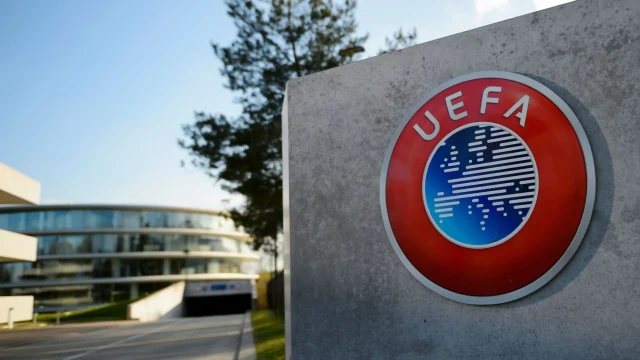
The Spanish mercantile company “European Super League Company, S.L.” (hereinafter, the Super League) has sued the International Association Football Federation (FIFA) and the Union of European Football Associations (UEFA) before a Mercantile Court in Madrid, Spain. According to the former, the latter associations are in breach of the European Union anti-trust treaty articles.
The legal conflict is quite simple to understand: Super League wishes to organise a high-level competition among top-notch European football clubs, but both FIFA and UEFA argue that, according to their by-laws and regulations in force, their consent is necessary for such a new league to be implemented.
The founding members of the Super League project are first division professional clubs in Spain, Italy and the United Kingdom, though others could be admitted at a later stage. The initial cost of the operation requires a financial loan coming from JP Morgan, whose signature and effect are being withheld until FIFA and UEFA grant their consent or are obliged to grant it by a judge, hence the legal proceedings in Madrid.
The Spanish judge can and indeed should directly apply European Union primary law, but before taking a decision preferred to submit a pre-judiciary question with the Court of Justice of the European Union on 11 May 2021.
On 21 December 2023, the EU Court has published its judgment, which fundamentally declares an abuse of a dominant position on behalf of FIFA and UEFA. This could be deemed to be an understatement, since both associations actually exert a monopoly in professional international and European football, respectively.
Football, as a sport, is above all a social endeavour that promotes virtue, sacrifice, self-improvement and teamwork towards the legitimate pursuit of an honourable goal. Here, one can only recognise the existence of thousands of sport associations which, despite being of a non-professional nature, deserve utmost public support.
But professional sport also has a very relevant economic element, including media rights associated to various competitions. FIFA and UEFA possess an exclusivity of those media rights and at the same time organise and control professional football at European and international level. This creates a clear risk for a large-scale conflict of interest.
An expert in sporting rights has argued that FIFA and UEFA could maintain exclusivity in rights, but in that case they should be “unbundled” from dictating statutory rules. This is similar to what has been done in the past for sectors like energy or telecom.
Some other academics have argued that the European Court has the potential to become a “constitutional watchdog within the lex sportiva”. We should not go that far: Beyond anti-trust law, European Union competence over sport is only of a support nature, national policy of Member States ranking first.
Prof. Villanueva of Groningen reminds readers of a requirement for transparent and objective procedures accompanying the rules of governing bodies, such as FIFA and UEFA. In comparison to unbundling, this seems as a weak and potentially ineffective strategy, given the mighty power of both football associations.
Prof. Lindholm of Umeå criticizes some ambiguity on behalf of the Court of Justice of the European Union and warns against the eventual excesses of overregulation, which could entail far-reaching consequences, well beyond the problems that first justified the reforming measures.
The Manchester lawfirm Mills & Reeve underlines the global effect EU law application can exert in the field of football through the transferring of players between clubs. Again, this does not prevent the fact that Member States remain sovereign to organise sport as they deem fit for their own population.
Prof. Weatherill of Oxford suggests the possibility of legislative measures at EU level, despite the fact that he recognises an important effect on UEFA’s attitude and future behaviour after the Luxembourg Court judgment.
Prof. Agafonova of Zurich supports a middle ground approach between FIFA and UEFA exclusivity, on the one hand, and new projects that might deserve merit, on the other. To this we might add the importance of guaranteeing the subsistence of professional clubs that could not be a part of a Super League. In fact, it must not be forgotten that the EU Court has not issued a ruling confirming the approval of the Super League project, still pending the judicial decision in Spain.
Prof. Borja Garcia of Loughborough focuses on accountability mechanisms, reminding that sport federations must produce fair anticompetitive rules. While we recognise these points, the actual autonomy of national sport federations is highly reduced by UEFA, an entity with a transnational character of a rather opaque nature.
Further academics from Edge Hill argue that, despite what has been said above on the international dimension of transfers, football can still be endowed with a relevant national character. On the other hand, Prof. O’Leary of the same university underlines the opportunities for collective bargaining in sports.
Prof. van der Burg of Twente points to the possibility that UEFA succeeds in the mid-term over the Super League, for example modifying the Champions League to the benefit of the top notch clubs. A national policy approach should compensate a continuing power of UEFA to protect all other clubs.
Finally, Prof. Zglinski of the London School of Economics supports a European sports act as a form of political will to set the course and establish a clear regulatory context. According to a conservative agenda, political will to pursue the common good is legitimate, but the subsidiarity principle calls for an approach at the lowest territorial level possible, and not from Brussels.
Source of image: Goal.com



 Subscribe
Subscribe